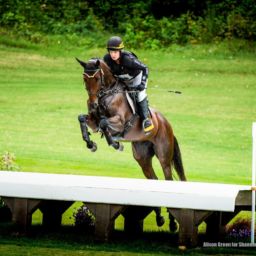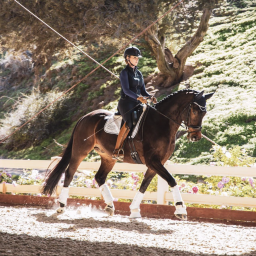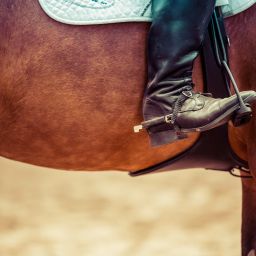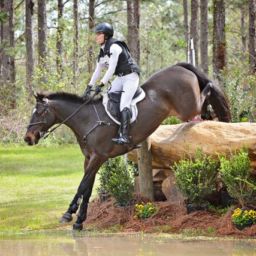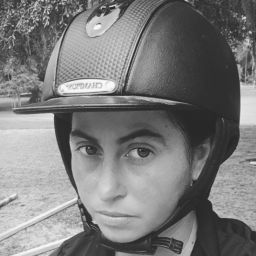By: Gabriella Ringer
For eventers, cross-country day is where adrenaline meets strategy. Galloping through open fields, tackling water complexes, banks, ditches, and solid fences is thrilling—but what many people don’t see is the preparation behind the performance. Cross-country success isn’t built in the competition ring; it’s built at home, in the schooling field. Cross-country schooling is not just about practicing jumps—it’s about developing the trust, technique, and mental toughness that define a successful partnership.
First and foremost, cross-country schooling builds confidence for both horse and rider. Confidence doesn’t appear overnight, it’s trained through repeated exposure to new and challenging questions. Whether you’re on a green horse, preparing for a move-up, or it’s your first ever time out there, schooling allows you and your horse to become familiar with different fence types and terrain while learning to think through problems. Riders also gain confidence by practicing how to approach and ride various questions with clarity and control. The more you expose yourself and your horse to the kinds of challenges you’ll see on course, the more likely you are to navigate them smoothly when it really counts.

Beyond confidence, cross-country schooling helps refine communication and deepen the trust between horse and rider. Out on course, there is not a lot of time to micromanage; your aids must be clear, timely, and trustworthy. Schooling sessions, especially with a trainer you trust to guide you, are your opportunity to fine-tune that communication, learning when to steady, when to send forward, and how to stay out of your horse’s way when they need to use their own judgment. Over time, this back-and-forth creates a trusting partnership, which is absolutely essential on a cross-country course.
Schooling also exposes your horse to new environments, which is always a good thing and critical for building composure on show day. Riding in unfamiliar settings helps horses learn to stay focused even when the surroundings are distracting. Footing, terrain, and venue changes can all affect a horse’s behavior, so the more experience they have outside the home arena, the better prepared they’ll be for competition!
From a technical standpoint, cross-country schooling also provides the chance to break down complicated questions like angled combinations or tricky terrain approaches and work through them gradually. This kind of targeted practice can help riders develop better timing, pace control, and jump accuracy. It’s also a perfect setting to work on pace and rhythm which is something that’s often difficult to simulate in an enclosed arena.
Finally, cross-country schooling can simply be looked at as a time to gain positive experience in the saddle. Every schooling session is an opportunity to practice staying calm, adjusting quickly when things go wrong, and recovering with purpose. These mental skills are just as important as the physical ones, especially in a phase known for its unpredictability.
Personally, I’ll admit that cross-country isn’t always the phase I feel the most confident in. But that’s exactly why I value schooling rides so much—they give me the chance to slow things down, build skills one step at a time, and work through those nerves in a productive way. I’ve found that every time I school, my horse and I both walk away more in sync and more prepared. He gains confidence with repetition, and I gain confidence in learning to trust my own decisions.
Ultimately, cross-country schooling is where a lot of real progress happens. It prepares you for the physical and mental demands of the sport, while deepening the partnership you share with your horse. Whether you’re prepping for your first Starter level course or tackling your first Intermediate move-up, consistent, thoughtful schooling is one of the most powerful tools in your training arsenal. So make the time. Ride the water, test the terrain, challenge the tricky questions, because the work you do schooling is what sets you up for success when the counts down starts!




